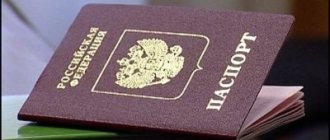If the property is considered jointly acquired, then it is impossible to do without obtaining an answer to the question of whether the spouse’s consent is needed to donate the apartment. This applies to any legally significant actions, including donations.
But written confirmation from the spouse is not required for every such transaction. If a previously gratuitous transaction has already been completed involving the same property, then it is considered to be in sole use. In such cases, consent from the spouses is no longer required.
Joint ownership: definition
There is not only state ownership of any property, but also other types of ownership. They also require searching for an answer to the question of whether the spouse’s consent is needed to donate an apartment.
- Collective.
- With shares.
- Of a private nature.
- For one person.
Joint ownership is a phenomenon when a husband and wife have property interests in one object with equal volumes, conditions, and rules of ownership. The phenomenon occurs when an object is acquired during a documented cohabitation. Donation of real estate is formalized according to special rules.
This rule is enshrined in Article 34 of the Family Code. Joint property can be both movable and immovable property.
Privatization is used when property is jointly owned not by spouses, but simply by close relatives, or there is no blood connection at all.
Article 244 of the Civil Code is devoted to the property rights of spouses in connection with the purchase of housing, under the law of privatization, and so on.
Joint ownership and privatization are the only concepts that are close in meaning. And which are used if it is necessary to make a donation with permission from the second owner. In other situations, this means shared common ownership of an apartment. The question of whether it is possible to draw up a deed of gift without the consent of the spouse requires a separate answer.
When is your spouse's consent needed and when is it not?
If you are a co-owner of an apartment with your spouse, but you need to give real estate, for example, to your sister or child, then you must obtain your spouse’s consent to sign this type of agreement for the alienation of joint real estate.
This rule is regulated by Art. 253 clause 2 of the Civil Code of the Russian Federation. Even if the shares are clearly defined by a court decision, the interests of co-owners or other owners must still be taken into account when disposing of one’s share.
During the transaction of donating an apartment, the consent of the spouse is necessary even when somehow, according to the documents, one spouse is the owner and he alone purchased the apartment.
And this is possible if the ownership was already formalized during the official marriage. However, if the transaction involves documents reflecting the fact that the real estate was acquired jointly by both spouses, then his presence and signature in the agreement procedure is sufficient.
The consent of the second spouse is issued exclusively in writing and certified by a notary.
But if the owner purchased the apartment before the marriage, which was concluded after the registration of ownership of this property, then the consent of the second spouse is not required. The reason for this is the usual explanation - the second spouse is therefore not a co-owner.
What documents are needed to donate an apartment to your daughter, the list is given in the article: “Documents for donating an apartment.” Read excerpts from judicial practice when canceling an apartment donation agreement here.
If the property is not joint, a notarial statement is drawn up, indicating that the apartment is legally, according to all legal norms, listed as sole property and not joint property.
Also, the consent of the spouse to donate an apartment is not required in the case of registration of any gratuitous transactions with a real estate gift.
Such previous transactions with an apartment could be, for example, the following:
- privatization under a gratuitous contract;
- receiving as a gift;
- receiving an inheritance.
The outcome of all gratuitous transactions is always sole ownership, but not joint property, so one owner can freely dispose of such real estate himself. This legislative norm is spelled out in Art. 36 of the Family Code of Russia.
Sample of spouse's consent to donate an apartment.
If real estate was acquired by spouses through privatization under a compensation agreement, then the consent of the spouse will be required to carry out the alienation transaction.
Spousal consent: requirement or no requirement
The consent of the spouse is required if the author of the gift agreement is a co-owner of the apartment, together with a second family member. Then the alienation of property cannot be done without fulfilling the corresponding condition.
This rule is described in detail in Article 253 of paragraph 2 of the Civil Code. Even if the ownership of shares is clearly determined by a court decision, the interests of other owners must be taken into account when making transactions. Whether it is possible to do without consent is always decided by the law.
Consent is required, even if for some reason it is believed that the apartment has only one official owner.
When making demands for consent from the spouse, a written form is used, with notarization.
But the requirement is waived if the marriage was concluded after the acquisition of this or that property. The second family member does not become a co-owner.
A simple notarized will will solve the problem when property is not joint. It indicates that the apartment is only privately owned. And that this fact is confirmed by law. Is it possible to violate the rights of owners? Definitely not.
In addition, the consent of the second family member will not be required if the property was previously received by the spouse through gratuitous transactions of the following types:
- Inheritance registration.
- Gift.
- Privatization by drawing up a gratuitous contract.
Sole ownership is the standard outcome for transactions carried out on a pro bono basis. Therefore, owners can dispose of property at their discretion. This is a legislative norm, described in detail in Article 36 of the Family Code of Russia.
Consent to donate an apartment when registering a deed of gift is a mandatory requirement if the property was acquired through privatization, under a fee-based agreement.
How is the spouse’s consent obtained when donating an apartment?
Registration of consent for donation varies depending on the type of gift. In the case of handling ordinary movable things, such consent is assumed and is not required to be given in writing. However, when an agreement is concluded that must be notarized or registered with government agencies, the spouse’s consent to the transaction is certified by a notary. In the absence of a properly executed document, the deed of gift will not be registered. In addition, the transaction may be declared invalid by the court due to the lack of the necessary consent of the spouse. In particular, consent to the gift will be required from the spouse in relation to:
- apartments;
- Houses;
- land plot;
- garage;
- non-residential premises;
- shares in the right to real estate if it is jointly owned;
- car.
Important! Consent to donate an apartment must be obtained from the spouse with whom the property was acquired during the period of family life, even if the marriage has already been dissolved. The presence of a new family and another spouse in this case do not matter. In addition, property acquired during de facto marital relations (the so-called civil marriage) is the property only of the partner to whom it is registered. The consent of the second person for the donation is not required, even if the purchase was made with common money. A dispute regarding the recognition of ownership of a part of such a thing is resolved in court.
The spouse's consent to donate real estate is expressed in writing and certified by a notary. Similarly, the consent of the spouse to the donation of a land plot, a residential building and any other real estate is made. Since this document is certified by a notary, it is usually drawn up by him, which allows you to avoid errors in execution. It should be understood that the spouse who gave such consent has the right to revoke it at any time before registration of the agreement, also by a notarized statement. If the property is owned by only one of the spouses, then he should submit to the registering authority a statement certified by a notary, confirming his right with the relevant documents.
Donating a share of an apartment: features of the procedure
In the case of shares, the situation is somewhat different. The document or agreement must specify exactly what share belongs to the second family member. This is important when donating an apartment to a common child.
The consent form from the second spouse must contain the following information:
- Description of the object from which the share is separated.
- Series, number, date of issue of the certificate of marriage or divorce.
- Residence address.
- Date of Birth.
- FULL NAME.
If there are other owners, then they must also provide consent. The main thing is that the documents reflect as clearly as possible the numerical and qualitative characteristics of the areas distributed among several owners.
About property division agreements
If the co-owner spouses had unequal shares in the property, then family members must also give consent when performing any types of transactions. For example, a family had two cars. After the division of property, one car will be owned only by one of the family members. And the second may remain jointly acquired.
Property division agreements are unique transactions. They are similar to documents defining shares. The main difference lies in the fact that the division of property presupposes that one of the family members has the right to completely dispose of the entire item, and not a share.
At the legislative level, there are no serious requirements for such documents. But this does not mean that you can rely only on personal preferences and desires in this sense. The spouse's consent to the gift remains the main requirement.
There are simple rules that remain common to everyone:
- If the contract price is more than 10 thousand rubles, the form must be in writing.
- The text cannot do without indicating the personal data of the parties, including: full name, place of residence, passport details, information about the marriage - whether it is valid or has already been dissolved.
- The transaction is dedicated to determining the future fate of the property, from the point of view of legal status.
- The property must have a clear description. The more specific the better.
- It is necessary to write to whom exactly and when the object is transferred.
- You cannot do without the date of conclusion of the agreement, the time when the status of a valid document appears. Otherwise, permission to divide property between children will also not become realistic.
Firmware with sealing is required for agreements that consist of several pages. A mandatory requirement is the presence of personal signatures with a transcript.
Generalized and vague formulations are unacceptable, otherwise there is a high probability of controversial situations arising. It is recommended to describe the subjects of agreements as specifically as possible, with quantitative and qualitative indicators. Housing must be specifically described.
Real estate types of property most often involve the use of joint ownership.
Additional conditions may also be required, as well as other actions such as:
- Inheritance.
- Mena.
- Hiring and so on.
Is it possible to revoke consent to donate an apartment?
Important! The spouse has the right to revoke his consent to donate the apartment at any time until the transaction is registered with Rosreestr.
To do this, he can again contact the notary and draw up a corresponding written statement with him. The notary will also have to certify this application.
Once the transaction has been completed and registered, it will no longer be possible to revoke it. In this case, the new owner will already assume his rights and will be issued a certificate of state registration of the right to the apartment. In this case, it will be possible to challenge the transaction only in court. After this, the state registration procedure will need to be completed again.
In order for the court to invalidate the gift transaction, compelling reasons will be needed. Moreover, they will need to be justified and documented. In accordance with this, it is better to formalize the donation procedure with the full consent of both spouses, otherwise the consequences will be far from pleasant. The spouse’s consent to donate an apartment can be the most important and decisive stage in concluding this type of transaction (
Notarized consent: possibility of cancellation
The law requires that consent from spouses be certified in writing with the participation of a notary when drawing up an agreement. Such documents are always required if property was acquired during marriage. This has already been said above.
Important! It happens that the second family member has already completed all the documents and notarized them. But then he changed his mind, which is why he wants to cancel the permit. Then the cancellation is also formalized with the participation of a notary.
This must be done before a transaction involving the transfer of property to another owner takes place. After all, property rights will be registered to another person. Refusal usually also requires the use of writing. But it is better to inform the other party and the notary about this in advance.
Is the consent of the spouse required to donate an apartment if the housing is left as an inheritance?
As noted above, a husband or wife who owns an object of inheritance, gift, or housing from the category of premarital acquisitions does not need the consent of the other half when disposing of the apartment. The sole owner is allowed to sell, donate or bequeath his property without additional consent. Although there are exceptions.
For example, the wife became the heiress of an apartment in the Khrushchev building, which required significant repair work. The husband used his personal financial resources to overhaul the home, which increased its price. Let's say its cost increased by a third. If this fact is proven in court, then the husband is entitled to a third of the housing. In this situation, it will not be possible to donate an apartment without his consent.




